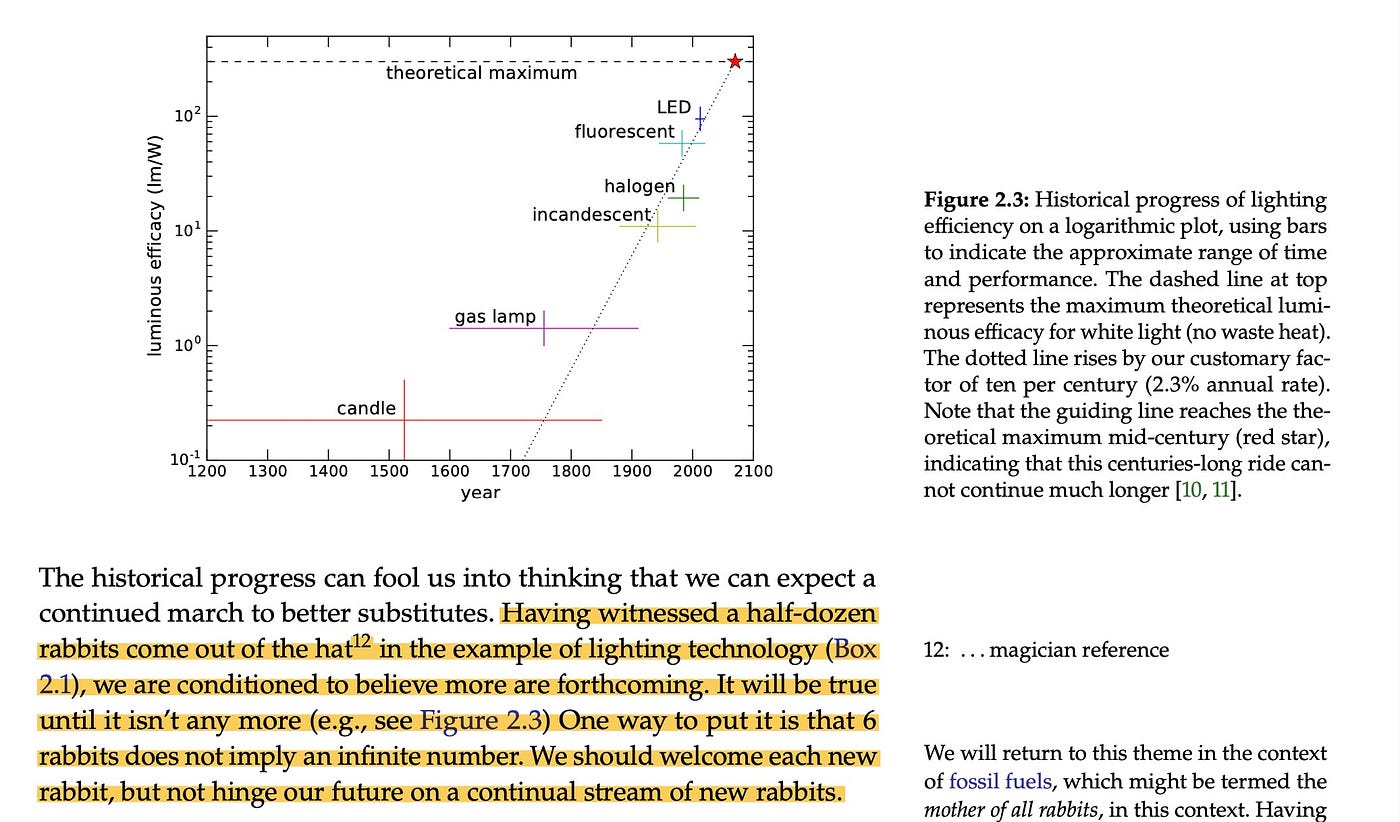How Science Is Dead

In the book/show Three Body Problem, aliens block scientific progress on Earth while they send an invasion fleet. In reality, this isn’t even necessary. Human science has been blocked for well over a century.
As a scientist in Three Body says:
“Ding nodded. “I have no direct connection with the Frontiers of Science, but it is famous in academia. Its core goal is a response to the following: Since the second half of the twentieth century, physics has gradually lost the concision and simplicity of its classical theories. Modern theoretical models have become more and more complex, vague, and uncertain. Experimental verification has become more difficult as well. This is a sign that the forefront of physics research seems to be hitting a wall.
“Members of the Frontiers of Science want to attempt a new way of thinking. To put it simply, they want to use the methods of science to discover the limits of science, to try to find out if there is a limit to how deeply and precisely science can know nature — a boundary beyond which science cannot go. The development of modern physics seems to suggest that such a line has been touched.”
This point from a fictional scientist is true. General Relativity and DNA were the last big discoveries, and the latter wasn’t entirely new. When it comes to completely groundbreaking idea like the periodic table or radioactivity or electricity, we’re still standing on the same ground as last century.
The Frontiers Of Science
Physics has gone from something a postal clerk could doodle on paper to something requiring billions of dollars and countless PhDs. And all they’re doing is adding footnotes to that doodle. The basic science hasn’t gone anywhere. And it’s not just physics. Electromagnetism been known since 1873, DNA since 1878, general relativity since 1915, and so on. Computing was thought of (though not implemented) in the 1800s (the Difference Engine), and AI was also thought of long before (and I argue built in the 1600s, see the end of this article).
The technology we build on top of this knowledge has grown by leaps and bounds, but the platform we build on has stayed the same.
The constant commodification of science fools us into thinking that basic science has been advancing, but it’s hasn’t. Modern planes, communications, weapons, medicine, and smartphones are still just applications of basic science that was known over 100 years ago. There’s no new physics in the iPhone 14 anymore than there was new understanding in the millionth obsidian arrowhead. Greater skill yes, but not greater understanding.
We have made many things, but we have not expanded our conception of what things could be.
We can’t build things we can’t imagine and our imagination died last century.
Even modern technology is not fundamentally innovative. Electric cars and solar panels have been around since the 1800s, and modern rockets have been around since the 1920s. Twitter is basically the shittiest telegraph imaginable and planes peaked at the Concorde and then declined straight into the ground. Don’t even get me started on home appliances. Someone visiting from last century would both understand our technology and be disappointed.
Everything we have today could be imagined last century and, indeed, they imagined better. We laugh at the fact that we don’t have flying cars and moon bases but this is a fairly fundamental failure. The proof that science has stalled is in our science fiction. Films like 2001: A Space Odyssey and Back To The Future II are set well in our past, and there’s no sign of that future anywhere.
Science has completely stalled out and that sets hard physical limits on the technology we can produce. It’s literally physics. Take, for example, light. Our understanding of the physics of light has led to more and more efficient (though often uglier) applications. That understanding, however, sets physical limits on how far that efficiency can go. And we’re pretty much there now.

Lighting simply cannot get much more efficient, and the last 10% improvement always takes much more work. Even ‘newer’ technologies like solar panels are near their physical efficiency limit already. Any new technology (like artificial photosynthesis) will also run into physics soon enough. People still count on things like space flight or computation
In Three Body Problem, the aliens have access to a higher physics are are able to ‘unfold’ a proton and encode a supercomputer in it. This is tiny AI is what they send to Earth to fuck shit up. The aliens even taunt the humans calling them ‘bugs’. As the (fictional) scientist Ding Yi explains again:
“I just want to point out this fact: In the universe, an important mark of a civilization’s technological advancement is its ability to control and make use of micro dimensions. Making use of fundamental particles without taking advantage of the micro dimensions is something that our naked, hairy ancestors already began back when they lit bonfires within caves. Controlling chemical reactions is just manipulating micro particles without regard to the micro dimensions. Of course, this control also progressed from crude to advanced: from bonfires to steam engines, and then generators. Now, the ability for humans to manipulate micro particles at the macro level has reached a peak: We have computers and nanomaterials. But all of that is accomplished without unlocking the many micro dimensions. From the perspective of a more advanced civilization in the universe, bonfires and computers and nanomaterials are not fundamentally different. They all belong to the same level. That’s also why they still think of humans as mere bugs. Unfortunately, I think they’re right.”

In another scene, Shen Yufei looks at a bug on a window and says,
Look at it. It tries hard, climbing over the bricks, over the steel, the glass. Through the glass, it sees you and me. It thinks it couldn’t get in because it hasn’t found the crack on the glass yet. It believes a crack must exist. I can give it the crack. But it got no choice.
Physics (especially the speed of light) are just the hard glass that keeps on this side of the universe, thermodynamics, and time. We can see beyond these limitations and we think that there must be a crack in the glass somewhere, but we are fundamentally as trapped as a bug on the window. And just as likely to get squashed.
Beyond The Frontiers Of Science
I have written about the physical, financial, and mathematical limits to growth on Earth, AKA the general collapse of industrial civilization. I can go on but honestly just read Murphy’s textbook where he goes through all the math, physics, and known technologies one by one. However, what if we come up with new physics? Or get it from an alien source or whatever. What if we get down (up?) to other dimensions and discover power that dwarfs the nuclear force? What if we use that energy to pump heat and waste off the planet and colonize the solar system? If we accept the physical limits of today as given, can we discount the new physics of the future?
Well, no. Because we don’t know what those physics are. Knowing humans the first thing we’ll do is weaponize new physics, so that’s not promising. But, theoretically, new theory that could restart basic science, fundamentally change our understanding of the world, and enable us to fuck it up some more. As Murphy says, “if energy became essentially unlimited by some technology, I shudder to think what it would mean for the rest of the planet.”
As much as I have tried to show that the doors are just closed on infinite growth, but this is one door that has to be left open. Some rabbit out the hat that starts the magic show once more, after magic rocks (electromagnetism and radioactivity) don’t work anymore. I don’t know if you accept that basic science has stalled out (it has), but even I must accept that it’s possible for it to restart. But not probable at all. As Murphy says:
Having witnessed a half-dozen rabbits come out of the hat in the example of lighting technology, we are conditioned to believe more are forthcoming. It will be true until it isn’t any more. One way to put it is that 6 rabbits does not imply an infinite number. We should welcome each new rabbit, but not hinge our future on a continual stream of new rabbits.
To me it’s statistically and spiritually wrong to believe in infinite rabbit producing infinite growth but it is possible. Because there may be new physics out there, which we may discover.
For me this is not ending this section on a hopeful note, the prospect of new science is terrifying. I don’t think science is ‘good’ any more than any other tool. You can can use a hammer for building a roof or clawing out eyeballs, and we use new science for violence immediately. The idea that people (re: Americans) who dropped nukes on civilian populations should be given more power is terrifying, not hopeful. The idea that we should continue the growth grinding out every other species is scary, not comforting. As you can tell I’d probably join the Frontiers Of Science, except for the alien worship. Fuck the aliens too, and whatever science they’re bringing.
While I admit the possible of new scientific discovery, one question I would ask is who’s doing the discovering? I assume that shareholders will continue developing AI even if the waste heat chokes us out and they’ll be crunching this growth problem relentlessly. But who would they solve the problem for? Because solving the problem of growth for corporations is very different from solving it for animals (which includes you and me). If corporate AI ‘solve’ the problem of growth, then the vast majority of humanity will end up as bugs on their windshield.
The funny thing is that corporate AI is also centuries old, even older than the slowdown of science. But that’s another story.